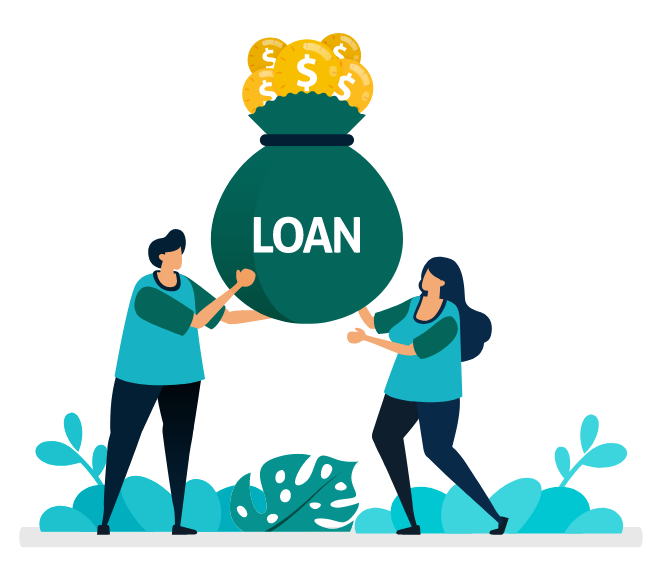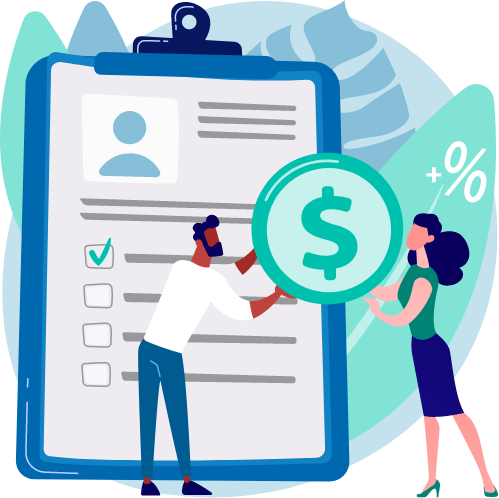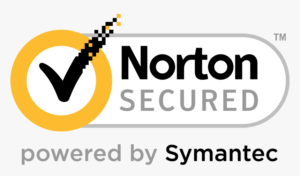SBA Loans: How to Apply, Pros & Cons and Everything You Need to Know


For a variety of reasons, business owners may seek out financing. Some common ones include increasing salary and benefits, improving health care options, investing in new machinery or real estate, or expanding current activities. Whatever the reason you need more capital, one good option for financing your firm is to apply for a loan from the Small Business Administration (SBA.) What is it, and how can you use it in your favor are questions that you will find answers to in this guide on how to apply for one!
What is an SBA Loan?
The SBA is a federal organization whose mission is to promote the expansion of small businesses. While the SBA does cooperate with traditional lenders like banks, community development organizations, micro-lending institutions and establishes standards for how such lenders might structure loans, the SBA itself does not lend money.
Eligibility requirements vary depending on the type of loan from the SBA, and other specifics. The terms of repayment typically include restrictions on the money's intended usage. If your banker has experience with SBA loans, the process may be easier for you as the program's loan requirements, the application process, and other specifics are subject to change.
SBA-guaranteed loans are great because their rates and fees are usually the same as those for non-guaranteed loans. Some come with ongoing help to start your business and keep it going. They also have lower down payments, less strict rules about overhead requirements, and some loans don't require collateral.
In addition to loans, the U.S Small Business Administration also offer other funding programs such as investment capital, disaster assistance, surety bonds, and grants.

How do SBA Loans Work?
For an SBA loan, you must first approach an SBA-Approved lender and a financial institution such as a bank or credit union. If you default on an SBA loan, the government will reimburse the lender for the full amount of the guarantee.
When applying for an SBA loan, every shareholder with a 20% stake or more must sign an individual guarantee. If your business fails to make payments when due, the responsibility for such payments will fall on you and your personal assets, thanks to this guarantee.
Lenders are more open to working with small firms since both the government guarantee and the personal guarantee minimize their risk. Once your SBA loan has been granted, your lender is responsible for finalizing the loan and disbursing the cash. Your repayments will be made directly to the lender on a regular schedule, most often in the form of monthly payments.
Types of SBA Loans
Numerous SBA loan programs exist, each with its own set of requirements and restrictions. The purpose of the loan is a major factor in determining which Small Business Administration loan is ideal for you to pay. There's the typical SBA 7(a), the SBA Express loan, disaster loans, and many others. We'll dive into the most popular categories of SBA loans.
SBA 7(a) Loans
For established small firms, the Small Business Administration offers the 7(a) loan, a type of "general purpose" credit. In many circumstances, it can increase cash flow and provide access to more money on more favorable terms. They function like lines of credit, so use these funds for anything from buying or renovating a commercial property to expanding your business through acquisition or buying out a business partner.
SBA Express Loans
The majority of the time, an SBA Express loan is used for operating capital. These express small business loans are perfect for purchasing or developing a business, obtaining equipment (including machines and cars), as well as furniture and other office basics like printers, fixtures, and more, and for refinancing existing debt.
SBA 504 Loans
Long-term, fixed-rate financing is provided for big assets like land and buildings through an SBA 504 Loan, which is usually utilized for real estate and equipment. These business loans are excellent for debt consolidation, facility construction, renovation, land acquisition, and long-term equipment financing.
SBA Microloans
Small Business Administration microloans are lower-dollar-amount loans. An intermediary lender, often a nonprofit community development company, does the heavy labor in the microlending process while the SBA provides the financing. The lending institution handles all aspects of the loan application, funding, and management process. This loan is perfect for cash flow, stocks, supplies, machinery, and equipment.
SBA Disaster Loans
For damages that exceed insurance coverage, small businesses that have been hit by natural disasters or emergencies like the COVID-19 epidemic may be eligible for SBA disaster loan assistance. Not only does SBA offer low-interest disaster loans to businesses of all sizes, but they also extend this offer to homeowners, renters, and private nonprofit organizations.
To be eligible for this loan type, your company must be located in a FEMA-declared disaster area, have fewer than 500 employees, and meet other SBA-established criteria for small business size. The funds will be put to good use in repairing infrastructure and meeting other necessary operating costs when a disaster has been declared.
Another great thing about SBA Disaster loans is you don't need to wait for your insurance settlement. SBA can give a loan for the total eligible losses as long as it fits within the administrative rules. If insurance money comes in later, the loan eligibility or balance can be changed.
SBA Community Advantage Loans
The SBA’s 7(a) loan program includes a subset of SBA loans known as Community Advantage Loans. When the Small Business Administration recognized a need to "address the credit, management, and technical assistance needs of small businesses in underserved regions," they developed the SBA Community Advantage loan program in 2011. Good for regular company needs; not a source of revolving credit.
SBA Export Working Capital Loans
Small business owners can apply for export working capital loans before an export sale or contract is finalized, allowing them more time to negotiate favorable payment terms. With this loan type, the maximum amount you may borrow is $5 million, and the processing period ranges from 5-10 business days.
SBA Export Express Loans
With the help of an SBA loan guarantee and a streamlined program called Export Express, small businesses can borrow up to $500,000 from a local partner bank. Most significantly, the money you receive from Export Express can be put toward anything that would assist your small business in expanding into international trade.
SBA International Trade Loans
Small businesses can get financing to expand into foreign markets and invest in competing with larger imports with the support of international trade loans. A maximum of 90% of the loan amount is guaranteed by the SBA in an international trade loan, making them ideal for financing fixed assets, operating capital, or debt consolidation.
Speak To An SBA Loan
Specialist Now!
SBA Investment Programs
The SBA doesn't put money directly into small businesses, but it does give money to SBICs that are qualified and have expertise in certain fields. The SBICs then invest in small businesses with both their own money and money that is guaranteed by the SBA.
The following are the different SBA Investment Programs:
Small Business Investment Company (SBIC)
Small Business Investment Companies (SBICs) are investment firms that are privately owned and operated but are governed by SBA regulations. They make equity and loan investments in SBA-eligible small businesses using their own assets and monies acquired with an SBA guarantee. Research SBICs to check if your company meets the criteria.
Small Business Innovation Research (SBIR) Program
With the help of this initiative, small enterprises are encouraged to participate in federally funded R&D with commercialization potential. Examine the SBIR to see if the awards competition is a good fit for your needs.
Small Business Technology Transfer (STTR) Program
This program provides financing options for federally funded innovative research and development. Small enterprises that are eligible for this program collaborate with nonprofit research organizations during their initial and developmental phases. Determine whether the STTR program is appropriate for your company.
SBA Loan Terms and Conditions
As with many processes, paperwork, credit history, terms, and conditions are part of getting the desired results. Keep reading for more information about those SBA Loans.
Terms of SBA Loans
The borrower and the participating lender negotiate the particular terms of SBA loans within the SBA's guidelines. All SBA 7(a) loans must generally comply with the following rules.
Get an SBA loan to allow your business to grow, today!
The necessary documentation must be gathered before you can submit your application. Work within SBA limits with your local lender to begin the process. Make sure you have all the documentation that the lender will require by using the checklist below. Your lender will send your loan package to the SBA once it is complete:
Here's the list of financial documents you'll need:
- Form for borrower data (SBA Form 1919).
- Accounting records (SBA Filter 413, Personal Financial Statements, business financial statements, including annual revenue as well as profit and loss statements )
- Affiliations and ownership (a list of names and addresses of any subsidiaries and affiliates.)
- Business authorization document (a copy of the original business license or certificate of doing business.)
- Application history for loans (records of any loans you may have applied for in the past.)
- Tax returns for income, including business tax returns and personal tax returns.
- Resumes.
- Business history and overview (history of the business and its challenges, along with the explanation of why you need the SBA loan and how it will help your business.)
- Enterprise lease (a copy of your business lease or a note from your landlord, with the terms of the proposed lease.)
Conditions of SBA Loans
The conditions for an SBA Loan are:
- You are the owner and operator of a business that generates profits.
- Your company may be legally structured as either a sole proprietorship, corporation, partnership, or limited liability company (LLC).
Of course, eligibility will play an essential role in the process of getting and applying for an SBA Loan; here are the necessary steps to maintain your eligibility:
Eligibility Requirements
For enterprises to qualify for 7(a) loan assistance, they must:
- Be a for-profit business and a small business as defined by SBA.
- Being involved in or attempting to engage in business in the United States or any of its territories.
- Have prudently invested capital.
- Prior to requesting financial aid, explore other financial options, including your own assets or other loan products.
- Be able to prove that you need a loan.
- Having a solid business plan for putting the loan proceeds to good use.
- Not have any outstanding debts to the United States government that are past due.
If everything goes well in the underwriting process, then your SBA-approved lender will contact you and send your business the loan agreement and go over the fine details like loan rates, repayment terms, amount, monthly payments, etc.
If there's anything that needs to be addressed in the underwriting process, you will be notified by that same representative or officer, giving you a chance to clarify any income statements, business plans, financial projections, your business credit score, or additional requirements that might have been missing from your application.
Can Startups Get SBA Financing?
Yes they can, but the business plan is even more important in these cases since as a startup, you won't have a cash flow history to show your ability to repay any startup loan. To make up for this, you'll need to demonstrate both industry-specific and business management experience.
The lender and the SBA will be taking a close look at your business plan and evaluating the potential of your business since it doesn't have a track record. To prove that you're serious about the success of your business, you can use collateral and even some of your own money as assurance.
Special Considerations
Some organizations and people require special consideration. Franchises are eligible, with the exception of circumstances in which a franchisor retains enough power over operations to resemble an employment contract. For instance:

- Farms and agricultural enterprises are eligible, but those who apply should first look at Farm Service Agency (FSA) programs, especially if they have a history with FSA.
- Recreational centers and clubs are eligible as long as (a) they are accessible to the general public, or (b) in cases where membership is restricted to a specific group of people, membership is not selectively denied to that group and the total number of memberships is not capped or limited in any way.
- Fishing boats are acceptable. However, those looking for funding must first submit a finance request to the National Marine Fisheries Service for vessels with a cargo capacity of five tons or more (NMFS).
- Legal aliens may apply. However, the type of status held (such as resident, lawful temporary resident, etc.) is taken into account when calculating the level of risk pertaining to the continuation of the applicant's business.
Loan Amounts
The average maximum loan amount for 7(a) loans is $5 million, while the maximum loan amount for an SBA Express loans is $350,000, and the maximum loan amount for SBA Export Express loans is $500,000.
The SBA will only be responsible for up to $3.75 million ($4.5 million under the loan for international trade). The highest guarantee to the lender for a $5 million SBA-guaranteed loan is $3.75 million, or 75% of the loan amount. Depending on the loan size and program type, a different percentage of the loan is guaranteed.
Interest Rates for SBA Loans
Interest rates and repayment terms are negotiated between the borrower and the lender, but they are subject to SBA maximums, which are pegged to the prime rate, the LIBOR rate, or an optional peg rate. Regardless of which loan rate is used, the borrower is responsible for paying SBA maximum rates. There is also the option of having variable interest rates.
But for many, SBA loans are still out of reach for many small businesses looking for another type of financing. That's where alternative lenders, like online lenders, come in and can give your business the lifeline it needs.
We hope this guide has been helpful to you and your plans on getting an SBA Loan. But for many, SBA loans are still out of reach for many small businesses looking for another type of financing. That's were alternative lenders, like online lenders, come in and can give your business the lifeline it needs. So worry no more! We've teamed up with top investors to develop a comprehensive answer to all . We use cutting-edge technology to assess your company's success rather than your personal credit. small business finance problems.
We devised a simple and rapid method of borrowing funds. We'll go through hoops to get your small business the money it needs to expand right now. If you need help, call our team at Quick Capital Funding today!
Quick Capital Funding is willing to guide you in the right direction of getting the loan you deserve.



